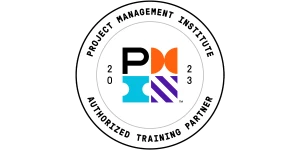Getting Your Business Competitive Edge With Kaizen
Let’s see how Japan became more competitive and what you can do in a similar way. After World War II, American experts helped to rebuild Japanese industry. The first program about Kaizen appeared in the 1950s when the concept began to emerge as a major force in industry.
Edwards Deming played a key role as he looked at Kaizen related approaches to helping industries in Japan and throughout the world. Deming used Kaizen like statistical control methods as part of the process for improvement. Throughout the 1950s attempts to improve continued and starting in the 1960s Deming prizes went to organizations with dependable products of high quality.
How can this help you? If you implement a Kaizen approach your business can benefit in these ways especially if your competition does not use these approaches.
- Quality will improve compared to your competition
- Productivity will improve compared to your competition
This is what worked for Toyota, and it could work for you too. Here are some of the Toyota approaches – using Kaizen methods – that could make your organization more competitive.
- Personnel stop work when they see a problem
- Personnel work with management to suggest improvements
- All workers come together with a Kaizen approach for continuous improvement
Imagine a company that makes plastic toys. An employee notices that the last batch of 100 toys was scrapped. What should an employee using Kaizen do? Here is an example.
- Shut down production
- Work with a supervisor or other employees to analyze the problem
- Work together to find a solution
- Evaluate the solution
- Implement the solution or try another solution until you solve the problem
An employee would not wait for the supervisor to tell them what to do. Instead, it is at the work station level you figure out and make the change.
A look at a Cycle
When we look at the competitive advantage you can get with a Kaizen approach it helps to look at cycles groups have found of help. The Deming cycle uses an approach of PDCA or:
- Plan
- Do
- Check
- Act
You can use this approach in your own organization to get a competitive edge. If your competition does not use this approach you could find by using PDCA your product will improve, your processes will improve, and your competitive edge will get better.
Let’s Ask Why
Another technique to help you get a competitive edge is to look at root causes and ask why. Toyota uses this approach and you can too to help with your competitive edge.
Here is an example of an approach you could ask about a problem such as scrapped plastic toys:
- We had to scrap the product.Why? This is the first why in response to the problem.
- The product was misshapen.Why? This is the second why.
- The machine made a misshapen product.Why? This is the third why.
- The machine was not working right.Why? This is the fourth why.
- The machine was not serviced at the last interval for scheduled maintenance.Why? This is the fifth why. We can now develop a solution such as improving the servicing process.
Asking 5 whys you can get a competitive edge by solving problems after you see what is the root cause. You can limit your scrap or problems. This should help with your business results and make you more competitive.
Let’s Review
We just looked at a way you can get a competitive edge by using a Kaizen related approach to your business. This can improve your competitiveness as you produce a higher quality end product and improve the productivity of your organization. You can use techniques such as using a plan-do-check-act (PDCA) cycle and asking 5 whys to get at the root cause of problems.
Wait no more, register today for your Six Sigma requirement. We look forward to seeing you in our upcoming session near you!
SixSigma.us offers both Live Virtual classes as well as Online Self-Paced training. Most option includes access to the same great Master Black Belt instructors that teach our World Class in-person sessions. Sign-up today!
Virtual Classroom Training Programs Self-Paced Online Training Programs






